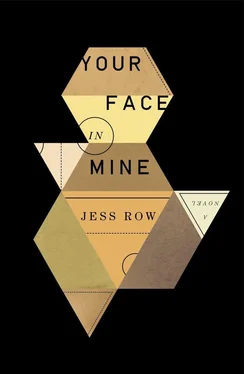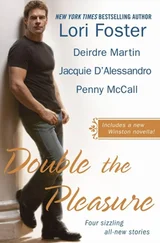So is that like Huey P. Newton reading The Republic or what? Knowledge is power? Paul chortles, leans back in his padded chair, and nods gravely as the waitress sets an egg-salad sandwich in front of him. Listen, he says, biting the tip off his dill spear, I got a new one for you. Power is power, knowledge is, what do they call it? Edutainment.
Tell that to the kids at Dunbar.
No, Paul says, but look, I’m serious. You can talk all you want about the intellectual life, and you’re damn right, there’s thinking people everywhere, in every walk, but The New Yorker , I mean, pick it up, it’s like reading Playboy for the interviews, only in reverse, because the thing about The New Yorker is that the ads are the porn. You know those little tiny ads they have, like, for the desk that’s hand-carved by Shakers in Wisconsin, and costs five thousand dollars? It’s a lifestyle magazine for people who think they’re too good for a lifestyle magazine. That’s some subtle shit right there, but it’s the truth.
So what’s he supposed to do? Marshall asks. Write for USA Today ? You think they print fifteen-thousand-word articles about the black middle class?
Kelly, Paul says, you know I’m not casting no aspersions, right? I’m just telling it like it is. We’re all in some kind of business. Shit, no, I think this article’s a great idea, it’s just, you know, don’t expect people to line up and start singing “Kumbaya.”
They’re waiting for me to say something: there’s a pocket of silence over the table, the vacuum of a conversation bubble popping, the lid lifted off a foaming pot. Martin, who’s said nothing, busies himself with dressing his chicken Caesar, adding extra pepper, flicking a stray crouton off the tablecloth.
I wish I’d brought my tape recorder, I say, lamely. This is all excellent. This is exactly what I was hoping for. An honest conversation.
Just quote me off the record, Lee says. Please. I mean it. I don’t need any more flak from Weinblatt — that’s my DA. Anyway, I’m not authorized. You’ve got to put an official in the district attorney’s office speaking on background . Don’t even call me an ADA, or he’ll start doing process of elimination.
Likewise for me, Paul says. I mean, you can use my name, just don’t put ESPN in there anywhere. They’ve got special search engines that find that stuff. If my name’s next to ESPN, I’m a company spokesperson. Which would mean my ass, in this case.
You see, Kelly, Marshall says, this is what you’re going to get. No offense, people, but look at us, right, prominent pillars of the community and whatnot, and we still don’t want to be identified as what we are. Successful Black People. You know what my coach at City College used to say? A black man goes downtown and buys a suit at Jos. A. Bank, and you know what it comes with? A bull’s-eye on the back.
Marshall, Martin says, finally, and every head turns to look at him. Mar shall, he says, again, with a little dip of emphasis, let’s not do this.
Do what?
The whole victim thing.
I’m not, Marshall says. I’m making a factual observation. Read the statistics if you don’t believe me. Psychologically, black people are less likely to feel secure. Financially , black people are less likely to feel secure. Sociologically—
What I’m saying here is, let’s take that as understood, okay? Let’s treat that as the background. That’s what Kelly’s trying to do here.
Marshall laughs, an unexpectedly shrill, reedy laugh. I don’t know, he says, are we there yet? Can we really treat that as back ground? What, because of Obama?
No. Not because of Obama. Because it’s a much bigger world than it used to be. Because we have so much more power , globally, than we think we do.
This is what you’re going to hear from him, Lee says to me. Blackness as a brand. As a strategy . I think that shit is stark crazy, but what do I know? I’m just a lawyer.
Jay-Z’s doing it, Paul says. The whole global brand thing. You look at the numbers for Rocawear, sixty percent’s overseas.
Yeah, Martin says. Jay-Z, that’s one model. But it’s so much more than that.
He takes a long sip of iced tea, dabs his lips with a still-folded napkin.
So? Marshall asks.
So? You want me to give away all my trade secrets?
Don’t be paranoid, Bill Gates, Paul says. We’re not in your business.
Everyone’s going to be in my business eventually. But look, that’s beside the point. What I’m saying, now , is, we need more brothers looking overseas for opportunities. It’s a big world full of very small niches.
You know what he does for a living? Marshall asks me. Has he told you what he sells?
Martin exchanges a glance with me across the table.
Electronics, I say. Specialized electronics. I’m not an expert—
Oh, come on, he hasn’t given you the sales pitch yet? He sells unlocked cell phones . Open-platform computers. Self-replicating proxy servers. Isn’t that right? What do you call it, spyware?
Not spyware. He shrugs. Geekware, maybe. Stuff people want so that they can get around Microsoft and Verizon. I don’t even understand some of it myself. I have a technical lady out in Mountainview who handles that. Me, I just do the buying and selling. It’s low-volume, big-margin sales. My customers are the kind of rich techies who want all the latest gadgets, prototypes, the stuff you can only get over in Asia, but they want it sold to them by somebody who speaks American, who operates with a friendly face. They want to have a guy . A hookup. Whatever. I’m not saying it’s easy money, but it’s not exactly the salt mines, either. Eventually, when the brand’s established, I’ll sell out and move on. I’m into business, not a business. If I could tell one thing to the kids at Dunbar, it’s that. Capital flows. Always be on the move.
That Zig Ziglar shit, Lee says. Always be selling. You can get it off a motivational poster.
No, Martin says, carefully, it’s not that. I’m not talking some self-esteem crap. And I’m not just talking about money . Success is more than money.
Power, then. Influence.
Connectedness, he says. To be intractable. Undismissable. Visible.
You writing this down? Paul asks me. Or do you just have one of those automatic, photographic memories?
Marshall fixes me with a newly interested look.
You know, he says to Martin, it must be nice to have a Boswell. An amanuensis. That’s seriously old school. I should look into getting one myself.
You lost me, Lee says. Ama-what?
Amanuensis, Martin says. Someone who follows you around and writes down everything you say. I could sell you one, you know. A digital voice recorder. I’ve got one the size of a toothpick for a hundred ninety-nine.
Hear that? Marshall turns to me. You’re superannuated, he says, with shining eyes, a pretense of malice that is itself malicious. You’re fired. Go home.
I’m going to say something here that should come as no surprise, at least not to those of my generation, born after the civil rights movement had shrunk to pages 263–67 of American Panoramas , and raised, for the most part, in the Eighties, watching Bill Cosby sell Pudding Pops on TV: my education in blackness, in the experience of black people in America, began one hot summer afternoon in 1989, in sticky-floored Theater C at the Chestnut Hill Mall 13, with Spike Lee’s Do the Right Thing .
Of course I had heard rap before. I knew, in a kind of academic way, what a crack addict was, and I knew a great deal about Martin Luther King: my parents’ first date was at the March on Washington in 1963. But in the world I lived in before I moved to Baltimore — Newton, Massachusetts, not Boston, unless you count the occasional trip to the Aquarium or Faneuil Hall — the only black people I saw regularly were babysitters and maids. My parents were ardent Democrats, classic northeastern Waspy liberals, who nonetheless, characteristically, chose to live in a neighborhood populated with people exactly like themselves — plus a margin of Chinese, Indian, Thai, and garden-variety reform Ashkenazim — for the schools, the parks, the playgrounds, the excellent restaurants.
Читать дальше












